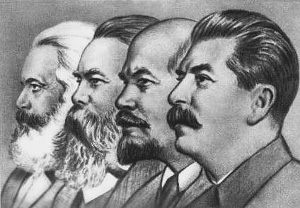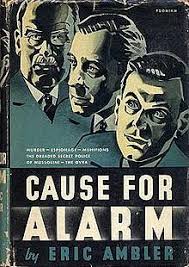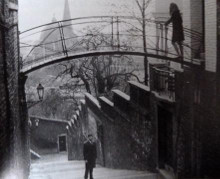Review: Revolutionary Russia, 1891-1991 by Orlando Figes.
Rating: Top marks for conciseness; a century of history in about 300 pages!
This is how I want to read history, getting the big picture without too much effort, leaving me to decide where I want to use a microscope. I’ll accept the pitfalls that go with leaving out the details.
 The book splits into three parts: the gestation and execution of the Revolution, the Stalin years and the decline of the regime. I would say that the first section was pitched at about the right level for me but that the writer overindulged himself somewhat in spelling out the horror of the Stalin years, very much at the expense of the final section which, insofar as it went, I found newest and most appealing. Khrushchev, Brezhnev, Gorbachev and Yeltsin all get crammed into a few (very interesting) pages where I’d have like to have heard more. He quotes Alexis de Tocqueville (1856):
The book splits into three parts: the gestation and execution of the Revolution, the Stalin years and the decline of the regime. I would say that the first section was pitched at about the right level for me but that the writer overindulged himself somewhat in spelling out the horror of the Stalin years, very much at the expense of the final section which, insofar as it went, I found newest and most appealing. Khrushchev, Brezhnev, Gorbachev and Yeltsin all get crammed into a few (very interesting) pages where I’d have like to have heard more. He quotes Alexis de Tocqueville (1856):
“the most dangerous moment for a bad government is when it begins to reform … Patiently enduring so long as it seemed beyond redress, a grievance becomes to appear intolerable once the possibility of removing it crosses men’s minds.”
A philosophical final chapter discusses guilt and blame, truth and reconciliation and I would have enjoyed some expansion of these matters.
Whether Figes is that right person to do this expansion is moot as his distaste for the regime is an obvious if reasonably well contained feature of the book.

 Not really a review, just a quick mention. Eric Ambler was one of John Le Carré‘s influences. As well as quite well-written spy-thrillers, he made a decent career writing screenplays for Hollywood. I was amused to note that his screenplay credits include The Wreck of the Mary Deare, based on the novel by Hammond Innes recently loaned to me by Eugene (and a ripping good yarn it is too).
Not really a review, just a quick mention. Eric Ambler was one of John Le Carré‘s influences. As well as quite well-written spy-thrillers, he made a decent career writing screenplays for Hollywood. I was amused to note that his screenplay credits include The Wreck of the Mary Deare, based on the novel by Hammond Innes recently loaned to me by Eugene (and a ripping good yarn it is too).
 Apparently, Wittgenstein claimed that games as a category cannot be defined as they have nothing in common so the author decided to show that indeed they can. He proposes a surprisingly simple definition
Apparently, Wittgenstein claimed that games as a category cannot be defined as they have nothing in common so the author decided to show that indeed they can. He proposes a surprisingly simple definition

















